Crossrail construction reaches halfway point
David Cameron visited Crossrail, Europe’s largest infrastructure project, to mark the halfway point of its construction.
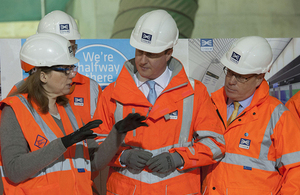
David Cameron visits Crossrail
The Prime Minister and Parliamentary Under Secretary of State for Transport Stephen Hammond visited the £14.5 billion Crossrail project, going 25 metres below ground to view progress at Crossrail’s Tottenham Court Road site. They were joined by apprentices and commuters who will benefit from the new east / west railway, along with Crossrail Chairman Terry Morgan CBE, Crossrail Chief Executive Andrew Wolstenholme OBE and Transport Commissioner Sir Peter Hendy CBE.
The Prime Minister said:
Big infrastructure projects like Crossrail are vital for the economy of London and the rest of Britain. They are the foundation-stone on which business can grow, compete and create jobs – a massive 55,000 jobs in the construction phase of this project alone.
Crossrail is one of our priority projects as set out in the National Infrastructure Plan.
See how we’re growing the UK economy.
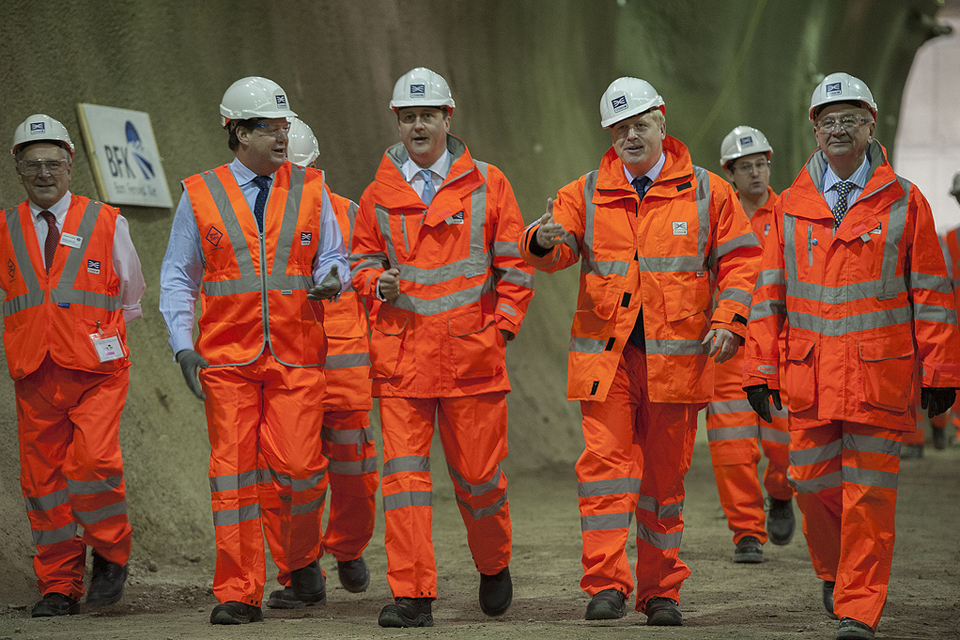
David Cameron visits Crossrail
Crossrail: key facts
Crossrail will add 10% capacity to London’s rail network and its services are due to start in 2018. It will serve 38 stations, connecting Maidenhead and Heathrow in the west with Shenfield and Abbey Wood in the east via central London.
The economic benefits from Crossrail are spread across the country. It is estimated that Crossrail will generate at least 75,000 business opportunities and support the equivalent of 55,000 full time jobs around the UK.
3 out of 5 businesses currently winning work on the project are based outside London and over half (58%) are small and medium sized enterprises. In addition to Crossrail, 61,000 jobs are created around the country annually through TfL’s investment programme.
When Crossrail opens it will increase London’s rail-based transport network capacity by 10%, supporting regeneration and cutting journey times across the city.
Read more about how we’re developing Crossrail.
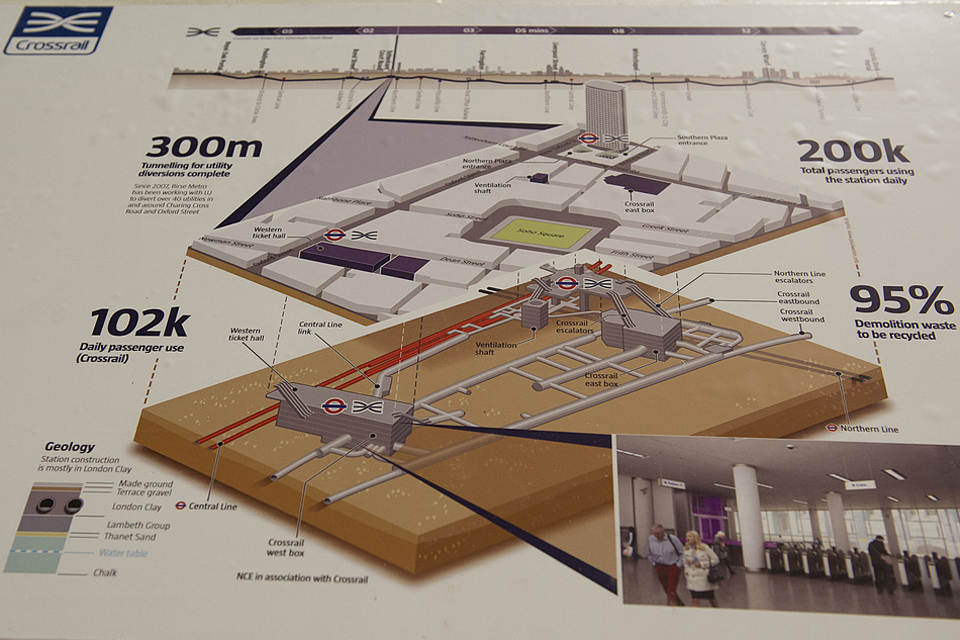
Cross section of Crossrail tunnels
Crossrail: part of our long-term infrastructure plan
We are taking action to deliver a national infrastructure plan to make the UK globally competitive. Up and down the country big projects are boosting our national prospects for the future and providing high quality jobs now. Whether it’s electrifying the Great Western Railway, getting high-speed broadband set up in rural areas, building a new bridge over the River Mersey or improving the road network across the country, we are determined that Britain will have the tools to compete in the global race.
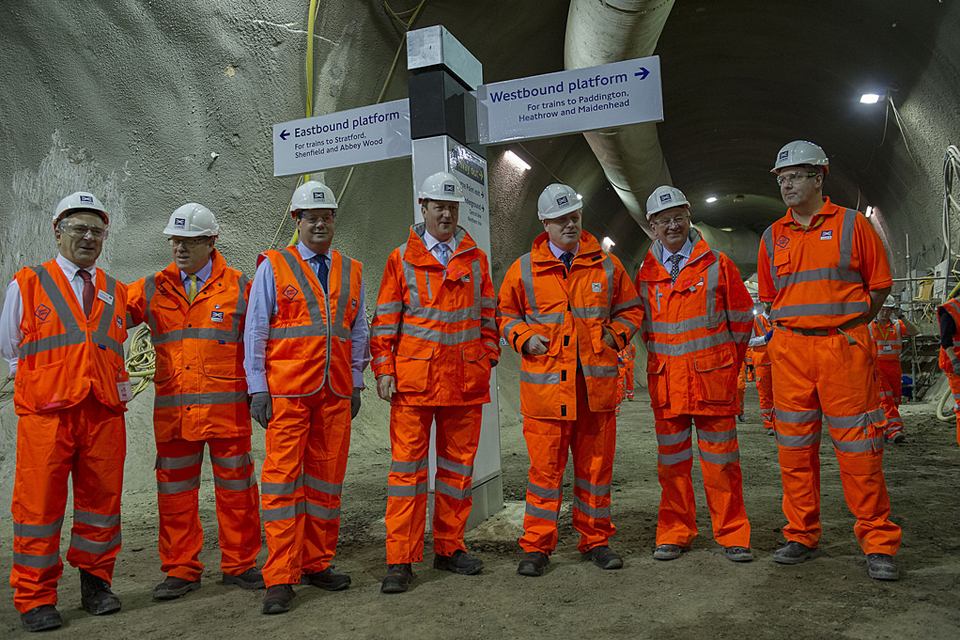
David Cameron visits Crossrail
At the Spending round we announced we will spend £300 billion on capital projects over the next 6 years, including £100 billion of specific projects. These include:
- providing funding for the biggest programme of investment in roads since the 1970s
- setting out £3.3 billion of new funding for affordable housing from 2015 to 2016
- providing funding for 500,000 new school places
- investing up to £250 million to extend superfast broadband so that 95% of UK premises will have access to superfast broadband by 2017
- specific long-term funding settlement for flood defences out to 2020
- new package on shale, including community benefits package, changes to planning and Environment Agency permit processes
- committing to HS2
Read our National Infrastructure Plan.
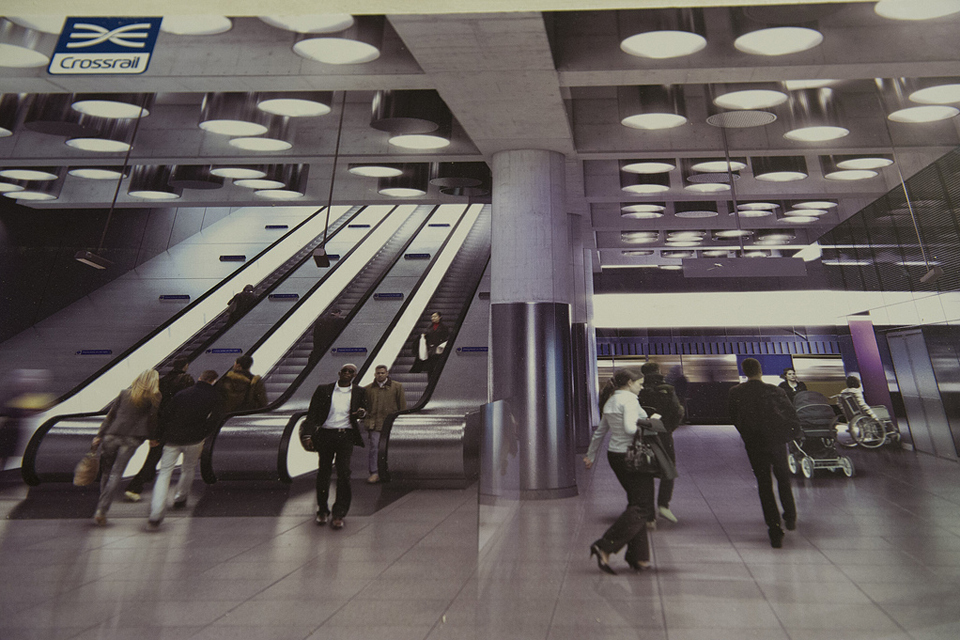
Artists impression of crossrail station